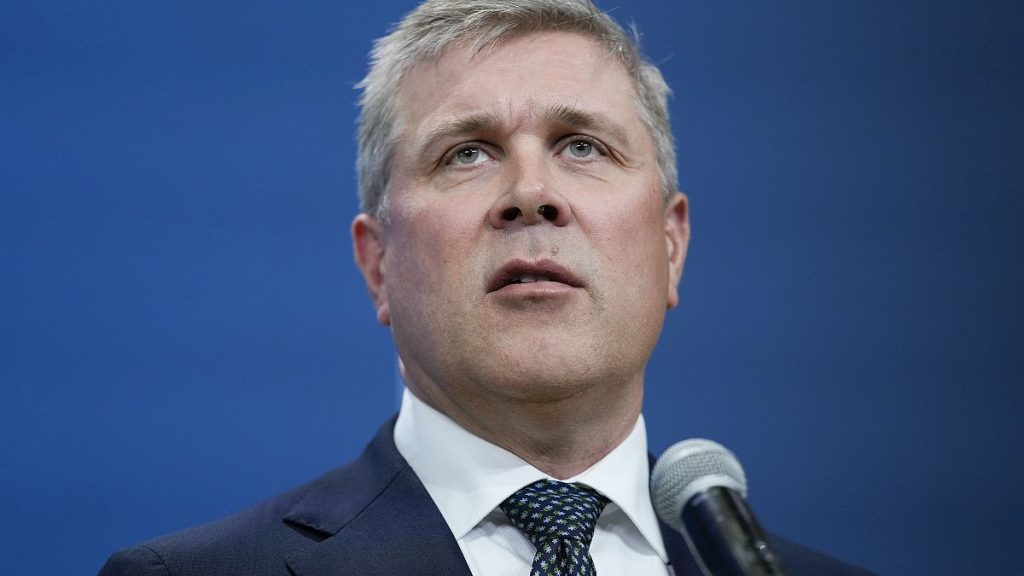Prime Minister of Iceland, Bjarni Benediktsson, announced the dissolution of the country’s governing coalition due to growing disagreements between the three political parties that make up the ruling coalition. The disagreements revolve around policies regarding asylum seekers and the future of energy efficiency. Fresh parliamentary elections are expected to take place on 30 November, pending acceptance by President Halla Tómasdóttir. National broadcaster RUV stated that elections must occur no later than 45 days after the dissolution of parliament. Benediktsson is set to meet with Tómasdóttir on Monday to discuss the next steps.
The coalition government in Iceland is made up of Benediktsson’s conservative Independence Party, the center-right Progressive Party, and the leftist Greens. Infrastructure Minister and Green Party Chair, Svandis Svavarsdottir, expressed surprise at the decision to dissolve parliament, stating that it had not been discussed during her recent talks with Benediktsson. She believed that discussions were centered around economic issues, housing, and other pressing matters affecting the general population. The dissolution of parliament comes after the ruling coalition, in power since November 2021, faltered amid a series of volcanic eruptions that forced thousands to evacuate their homes and added pressure to an economy already grappling with high inflation and rising interest rates.
Benediktsson highlighted disagreements within the government regarding asylum seekers and the future of energy efficiency as key factors in the decision to dissolve the ruling coalition. The government has been divided over these issues for some time, leading to a breakdown in cooperation between the three political parties. If President Halla Tómasdóttir accepts the motion to dissolve parliament, fresh parliamentary elections are expected to be held on 30 November. National broadcaster RUV has confirmed that elections must take place within 45 days of the dissolution of parliament, setting a timeline for the upcoming political transition in Iceland.
The surprise announcement of the dissolution of the coalition government has sparked uncertainty and concern among political leaders and the general public in Iceland. Infrastructure Minister Svandis Svavarsdottir expressed her surprise at the decision, highlighting the need for discussions on economic issues and housing to be prioritized. The ruling coalition, which has been in power since November 2021, has faced challenges ranging from natural disasters to economic instability. The decision to dissolve parliament comes at a critical time for Iceland, as the country grapples with multiple crises that have strained the government’s ability to address pressing issues effectively.
As preparations begin for fresh parliamentary elections on 30 November, political parties in Iceland are expected to ramp up their campaigns and mobilize support from voters. The dissolution of the ruling coalition has opened up opportunities for new alliances and coalitions to emerge in the upcoming elections, potentially reshaping the political landscape in Iceland. With the economy, housing, and asylum policies likely to feature prominently in the election discourse, candidates will need to articulate clear visions and solutions to address the challenges facing the country. The outcome of the elections will have far-reaching implications for Iceland’s governance and the direction of its policies in the coming years.
In the aftermath of the dissolution of the coalition government, President Halla Tómasdóttir will play a crucial role in overseeing the transition to fresh parliamentary elections and ensuring a smooth transfer of power. With the political landscape in Iceland undergoing significant changes, Tómasdóttir’s leadership will be essential in guiding the country through this period of transition and uncertainty. As political parties prepare for the upcoming elections, the focus will be on addressing the pressing issues facing Iceland and engaging with voters to build support for their respective platforms. The outcome of the elections will determine the future direction of Iceland’s government and policies, shaping the country’s trajectory for years to come.


